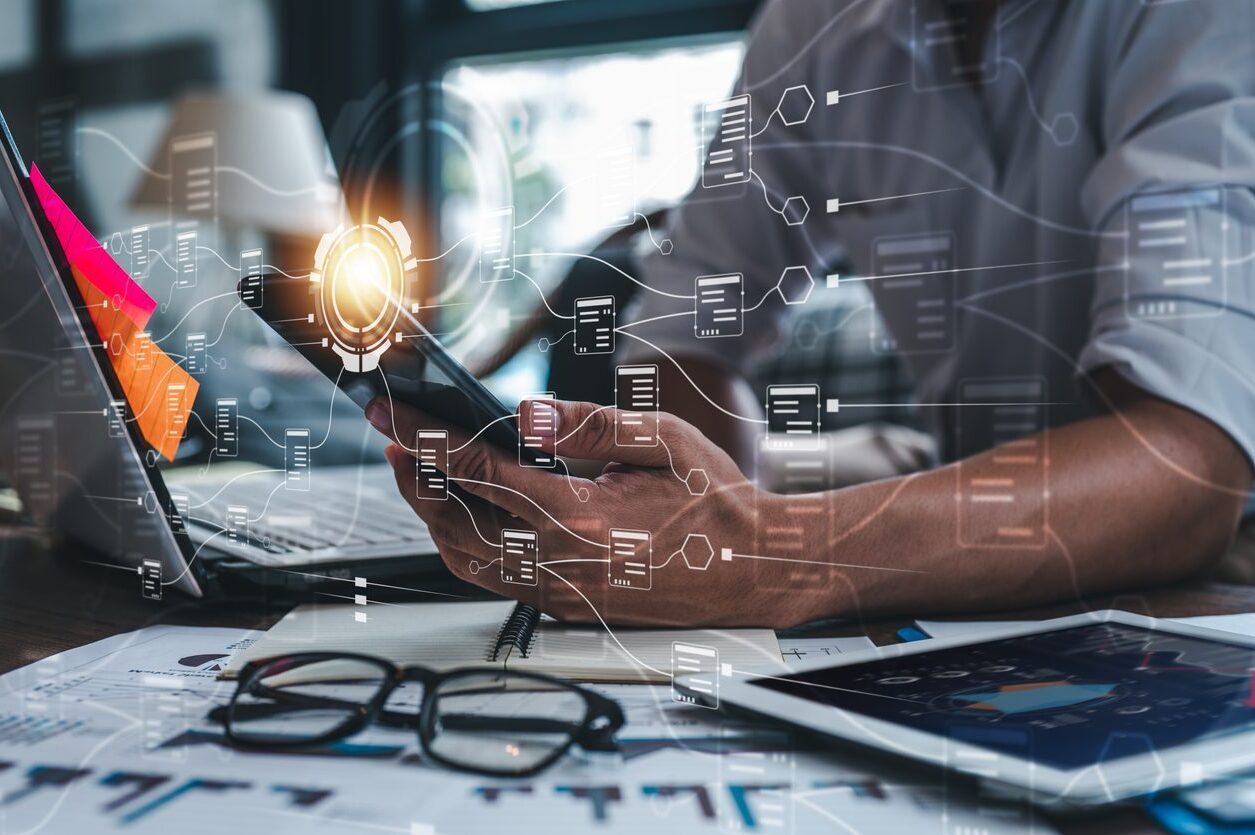
Artificial Intelligence (AI) has become a buzzword, but what exactly makes it so intriguing? AI links our daily lives with technology in ways we often overlook. From voice assistants like Siri and Alexa to recommendation systems on Netflix and Amazon, AI is everywhere. It’s not just about robots taking over jobs; it’s about enhancing human capabilities. AI links can be found in healthcare, where predictive algorithms help diagnose diseases, and in finance, where they detect fraudulent activities. Curious about how AI impacts your life? Here are 18 fascinating facts that will make you see AI in a whole new light.
What is AI?
Artificial Intelligence (AI) is a branch of computer science focused on creating systems capable of performing tasks that usually require human intelligence. These tasks include learning, reasoning, problem-solving, perception, and language understanding.
-
AI can learn from data. Machine learning, a subset of AI, allows systems to learn and improve from experience without being explicitly programmed. Algorithms analyze data, identify patterns, and make decisions with minimal human intervention.
-
AI powers virtual assistants. Virtual assistants like Siri, Alexa, and Google Assistant use AI to understand voice commands, answer questions, and perform tasks. They rely on natural language processing (NLP) to interpret and respond to user requests.
History of AI
The journey of AI began decades ago and has evolved significantly over time. Understanding its history helps appreciate its current capabilities and future potential.
-
AI's roots trace back to the 1950s. The term "Artificial Intelligence" was coined in 1956 during the Dartmouth Conference. Early AI research focused on problem-solving and symbolic methods.
-
AI experienced a "winter." In the 1970s and 1980s, AI faced a period of reduced funding and interest, known as the "AI winter." This was due to unmet expectations and the limitations of early AI technologies.
AI in Everyday Life
AI has seamlessly integrated into various aspects of daily life, often without people even realizing it. Here are some ways AI impacts everyday activities.
-
AI enhances online shopping. E-commerce platforms use AI to recommend products based on browsing history and purchase behavior. This personalization improves user experience and increases sales.
-
AI improves healthcare. In medicine, AI assists in diagnosing diseases, predicting patient outcomes, and personalizing treatment plans. AI algorithms analyze medical images, patient records, and genetic data to provide insights.
AI in Entertainment
The entertainment industry has embraced AI to create more engaging and personalized experiences for audiences. From movies to music, AI plays a significant role.
-
AI generates music. AI algorithms can compose music by analyzing existing compositions and creating new pieces in similar styles. Platforms like Amper Music and AIVA offer AI-generated music for various uses.
-
AI enhances video games. Game developers use AI to create intelligent non-player characters (NPCs) that adapt to player actions. AI also helps in procedural content generation, creating vast and dynamic game worlds.
Ethical Considerations of AI
As AI technology advances, ethical concerns arise regarding its impact on society. Addressing these issues is crucial for responsible AI development and deployment.
-
AI can perpetuate biases. AI systems can inherit biases present in training data, leading to unfair or discriminatory outcomes. Ensuring diverse and representative data sets is essential to mitigate this risk.
-
AI raises privacy concerns. AI's ability to analyze vast amounts of data can lead to privacy violations. Protecting personal information and ensuring data security are critical in AI applications.
Future of AI
The future of AI holds immense potential, with ongoing research and development promising even more advanced and capable systems. Here are some predictions for AI's future.
-
AI will revolutionize transportation. Autonomous vehicles, powered by AI, are expected to transform transportation by reducing accidents, improving traffic flow, and providing mobility solutions for all.
-
AI will advance personalized education. AI-driven educational tools can tailor learning experiences to individual students' needs, helping them achieve better outcomes and fostering a love for learning.
AI in Business
Businesses across various industries leverage AI to optimize operations, enhance customer experiences, and drive innovation. Here are some ways AI is transforming business.
-
AI streamlines customer service. Chatbots and virtual agents use AI to handle customer inquiries, providing quick and accurate responses. This improves customer satisfaction and reduces operational costs.
-
AI optimizes supply chains. AI algorithms analyze data to predict demand, manage inventory, and optimize logistics. This leads to more efficient supply chain operations and reduced costs.
AI in Science and Research
AI is a powerful tool in scientific research, enabling discoveries and advancements across various fields. Here are some examples of AI's impact on science.
-
AI accelerates drug discovery. AI algorithms analyze chemical compounds and predict their potential as new drugs. This speeds up the drug discovery process and reduces costs.
-
AI aids climate research. AI models analyze climate data to predict weather patterns, assess environmental changes, and develop strategies for mitigating climate change impacts.
AI in Art and Creativity
AI is not just about logic and data; it also plays a role in creative fields, pushing the boundaries of art and design.
-
AI creates visual art. AI algorithms can generate paintings, drawings, and other visual art forms. Artists use AI tools to explore new styles and techniques, blending human creativity with machine intelligence.
-
AI writes stories. Natural language processing (NLP) enables AI to write stories, poems, and articles. AI-generated content can serve as inspiration for writers or even stand alone as creative works.
Final Thoughts on AI
Artificial Intelligence is transforming our world in ways we couldn't have imagined a few decades ago. From self-driving cars to virtual assistants, AI is everywhere. It's not just about making life easier; it's about creating new possibilities. Healthcare, education, and entertainment are just a few sectors experiencing significant changes due to AI advancements. However, with great power comes great responsibility. Ethical considerations, data privacy, and the potential for job displacement are issues we must address. Staying informed and engaged with these developments is crucial. As AI continues to evolve, so will our understanding and application of it. Embrace the change, but remain vigilant about its implications. The future is bright, but it's up to us to ensure it's also fair and just. Keep learning, stay curious, and let's shape a better tomorrow together.
Was this page helpful?
Our commitment to delivering trustworthy and engaging content is at the heart of what we do. Each fact on our site is contributed by real users like you, bringing a wealth of diverse insights and information. To ensure the highest standards of accuracy and reliability, our dedicated editors meticulously review each submission. This process guarantees that the facts we share are not only fascinating but also credible. Trust in our commitment to quality and authenticity as you explore and learn with us.


